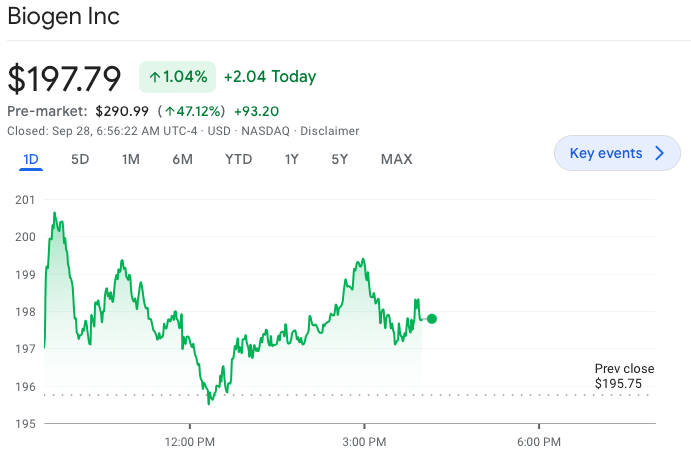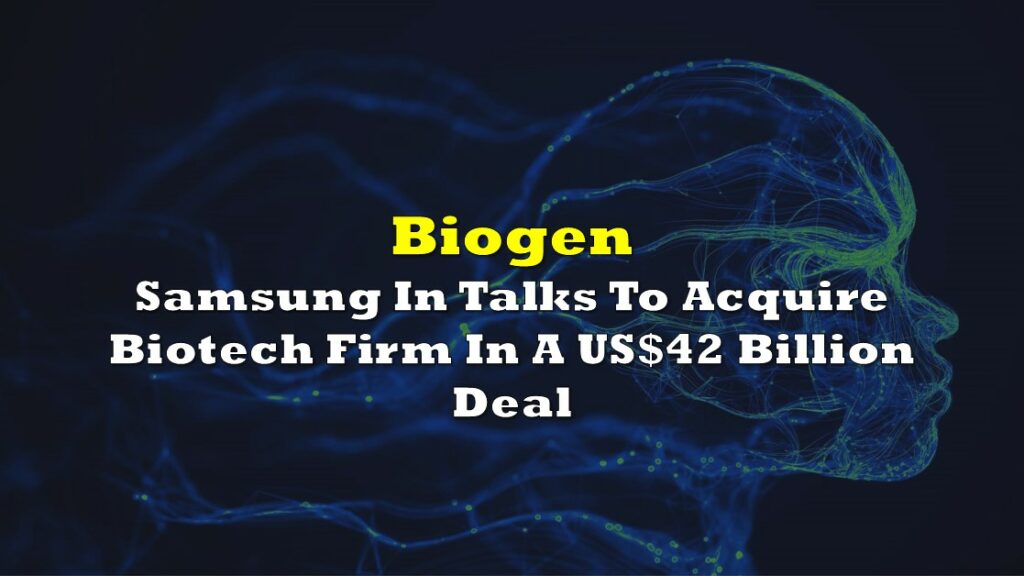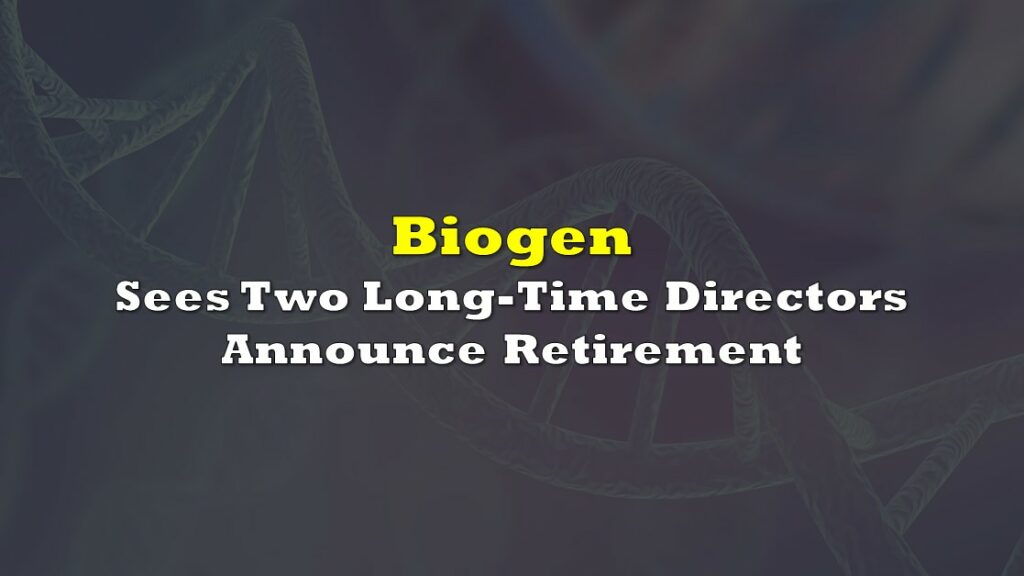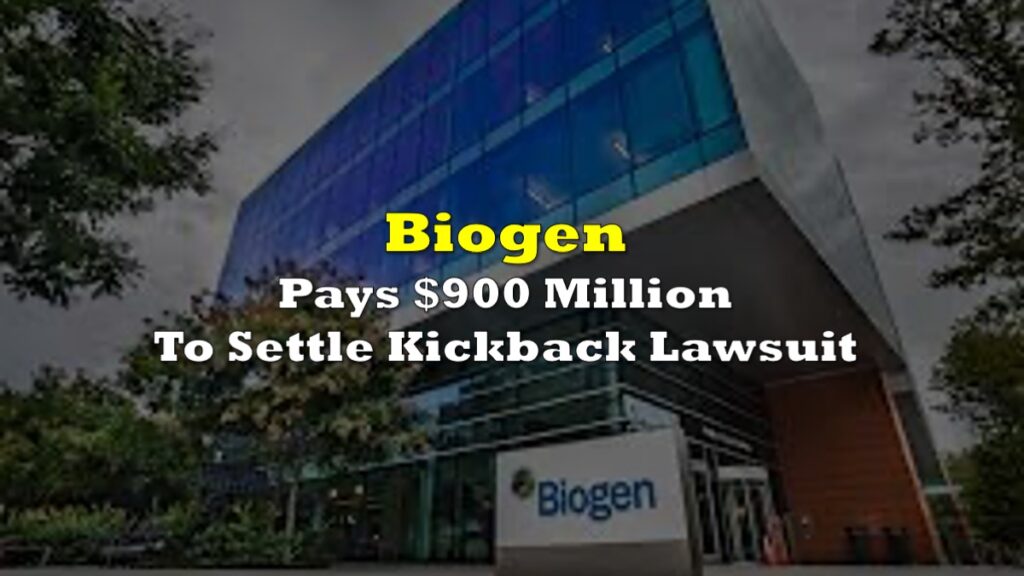Fresh off a US$900 million settlement agreement, Biogen, Inc (Nasdaq: BIIB) announced positive topline results from the phase 3 study of its investigational antibody lecanemab to treat mild cognitive impairment due to Alzheimer’s disease.

The study, conducted in partnership with Tokyo-based pharmaceutical firm Eisai, involved 1,795 patients with early Alzheimer’s Disease. Based on a numeric scale used to quantify the various severity of symptoms of dementia, the drug candidate “reduced clinical decline” at 18 months by 27% compared to placebo treatment.
The crux of the results centered on the amyloid beta that accumulates in the brain is theorized to be causing the disease and its manifested symptoms. Lecanemab, an anti-amyloid beta protofibril antibody, proved to have increased the incidence of amyloid-related imaging abnormalities.
“Today’s announcement gives patients and their families hope that lecanemab, if approved, can potentially slow the progression of Alzheimer’s disease, and provide a clinically meaningful impact on cognition and function,” said CEO Michel Vounatsos. “Importantly, the study shows that removal of aggregated amyloid beta in the brain is associated with a slowing of disease in patients at the early stage of the disease.”
The firm said that Eisai aim to file for traditional approval in the US and for marketing authorization applications in Japan and Europe by the end of March 2023.
Following the announcement, the company’s shares soared by 44% on pre-market trading, reaching its year-to-date record high just below the US$300-mark–last achieved in September 2021.

Biogen Settles But Denies Wrongdoing
The positive results of the study comes on the heels of a settlement agreement Biogen made with the US Justice Department. The authorities officially announced that the company agreed to pay US$900 million to resolve a long-running whistleblower lawsuit that alleges the firm paid physicians kickbacks to push its multiple sclerosis drugs.
The case was put forth in 2015 by former Biogen employee Michael Bawduniak under the qui tam or whistleblower provisions, filing the lawsuit on behalf of the United States. In it, the plaintiff accused the Massachusettes-based biotechnology company of inducing doctors to prescribe the drugs Avonex, Tysabri, and Tecfidera in exchange for paid remuneration–including in the form of speaker honoraria, speaker training fees, consulting fees, and meals–from January 2009 to March 2014.
The firm has previously announced the agreement-in-principle to pay the said settlement in its latest quarterly report. The amount was a little below the US$981.1 million that Bawduniak was seeking in damages.
“We thank Mr. Bawduniak for uncovering this behavior and bringing it to light,” said U.S. Attorney Rachael S. Rollins for the District of Massachusetts. “This matter is an important example of the vital role that whistleblowers and their attorneys can play in protecting our nation’s public health care programs.”
The biotech firm will be paying US$843.8 million to the US government and US$56.2 million to the 15 states related to the case. Bawduniak will get 29.6% of the federal settlement amount.
However, Biogen still maintains “its intent and conduct was at all times lawful and appropriate” and continues to deny the allegations.
“Biogen determined that now was the right time to resolve the litigation and allow the Company to remain focused on our patients and strategic priorities. Biogen continues to believe that it is important to equip physicians and patients with the information needed to make the best decisions for their care,” the company said in its statement.
Biogen last traded at US$269.11 on the Nasdaq.
Information for this briefing was found via US DOJ, Biogen, and the sources mentioned. The author has no securities or affiliations related to this organization. Not a recommendation to buy or sell. Always do additional research and consult a professional before purchasing a security. The author holds no licenses.








